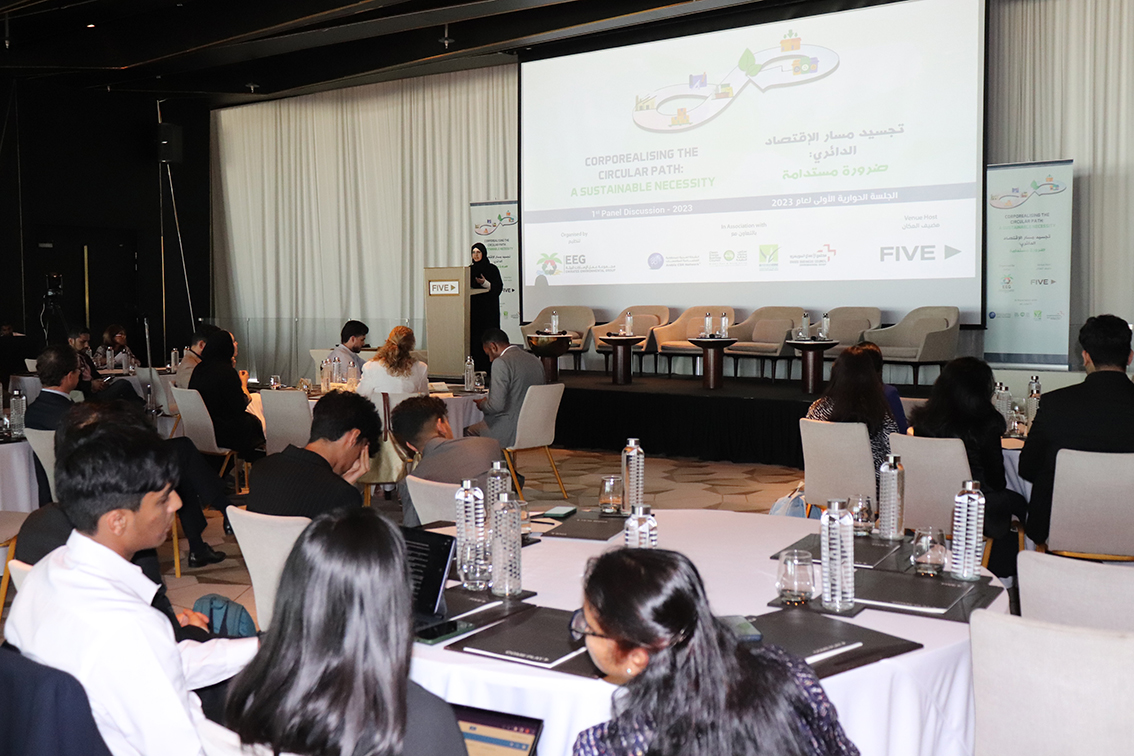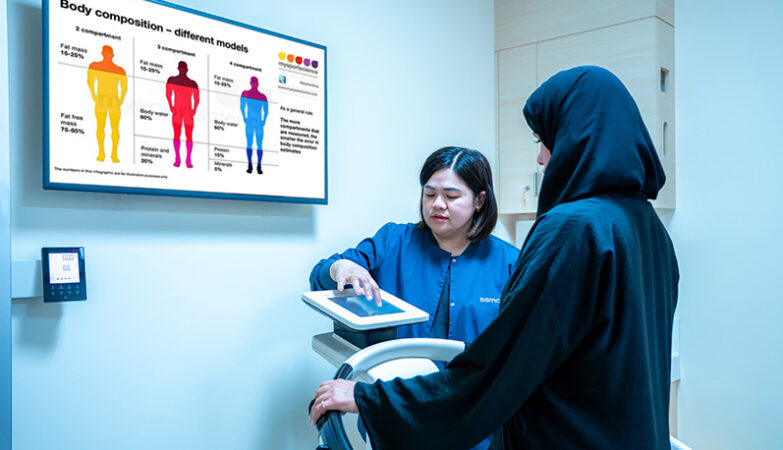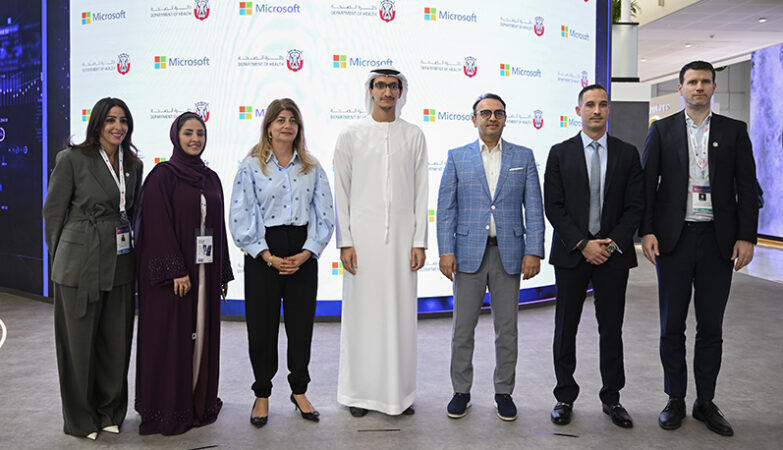Emirates Environmental Group conducted its 1st Panel Discussion of 2023 on 10th May in association with Arabia CSR Network and supported by EmiratesGBC, Clean Energy Business Council and the Swiss Business Council. The panel discussion was hosted by the Five Palm Hotel between 4:00 pm. and 6:30 pm. GST as a hybrid event. The discussion revolved around the importance of establishing a circular economy as the common norm in order to achieve global environmental sustainability and net zero goals
Mrs. Habiba Al Mar’ashi, Co-founder and Chairperson of EEG opened her speech by giving a brief of EEG’s achievements in the 1st quarter of the year and then delved into the topic of the panel discussion saying: “Ever since its inception in 1991, EEG has been pushing for the implementation of a circular economy in the country. As a semi-arid region, we do not own all the necessary and required resources, the majority of the resources we use today, including the raw materials used in the majority of industries are imported. Thus, it is important that we learn to circularise and loop the imported resources within the country with a long-term sustainability plan in terms of the environment and economy. We cannot rely on the export of oil in the long term to fund the import of other resources, which can be easily fed into the circular loop needed to sustain the UAE as a thriving country that can continue to progress with modern amenities”.
She stressed the importance of making circular economy a reality by sharing key statistics: “According to the latest Global Circularity Gap Report, published in 2023, only 7.2% of the global economy is circular. If one does not find this number alarming, the fact that this percentage has come down over the last 5 years from 9.1% in 2018 will leave us all questioning.
This statistic means that on a global scale, we are extracting more virgin raw materials, which puts great stress on all the planetary resources available and overshoots the boundaries where the earth can replenish itself naturally. This has drastically put great stress on the environment, biodiversity and all the natural cycles of the planet, including climate, nitrogen, phosphorus, oceans, and more. We need to take the necessary actions now; otherwise these percentages will only grow as our exploitation of resources will lead to instability of planetary boundaries and will result in unexpected global consequences.”
To discuss the concept of circular economy, the discussion brought to the stage 6 key subject matter experts.
The distinguished panel of speakers were:
- Mr. Tim Hilger, Economic Affairs Officer at United National Department of Economic and Social Affairs (UNDESA)
- Ms. Loubna Zaitouni, Senior Specialist, Co-operatives & Strategic Reserve Department, Ministry of Economy
- Dr. Salam Sharif, Founding Chairman of Recycling Association of Africa-RAA
- Dr. Nika Salvetti, Adjunct Professor, Heriot-Watt University, Dubai
- Dr. Hassan Ali, Subject Lead Engineering, De Montfort University, Dubai
- Mr. David Shepley – Director of Sustainability – FIVE Palm Hotels and Resorts
The session addressed several important points such as:
1.The framework developed by UN to tackle global challenges being faced and solutions to achieve financing for a sustainable development
2. The circular economy approach in the UAE that promotes changes in economic practices to facilitate the transition, support the implementation of sustainable production and consumption practices
3. The opportunity to address climate change and unsustainable patterns of production and consumption
4. The need to develop indicators that track the flow of materials and resources throughout the economy to include also measures such as the amount of recycled materials, the use of renewable energy and the reduction of waste.
5. The key benefits of circular economy such as reduction in the emission of air pollutants and the release of toxic and carcinogenic chemicals that leach into the environment.
6. The need to establishment clear standards and guidelines for a circular economy to help identify entities that are truly committed to circular economy from those engaged in green-washing.
7. Circular economy is a journey; we need to develop new technologies and practices to make it a reality. We must continue to innovate and push the boundaries of what is possible.
The panel discussion also addressed several of the United Nations Sustainable Development Goals, including SDG #12 on sustainable consumption and production—the core SDG for the circular economy. It also targeted other SDGs, including SDG #7 on energy, SDG #8 on economic growth, SDG #11 on sustainable cities, SDG #13 on climate action, SDG #14 on oceans, SDG #15 on life on land, and SDG #17 on partnership for the Goals.
The speakers shared valuable knowledge during their discourse, the session concluded with a lively interactive session where the expert speakers and audience, including industry business leaders, government officials, students from high schools & universities, and the media, shared their views, discussed doubts, verbalised their concerns, and addressed challenges, including opportunities where circular economy can grow and lead the UAE to be one of the pioneering countries to pave the path to establishing a circular economy not just as a vision but a reality.








